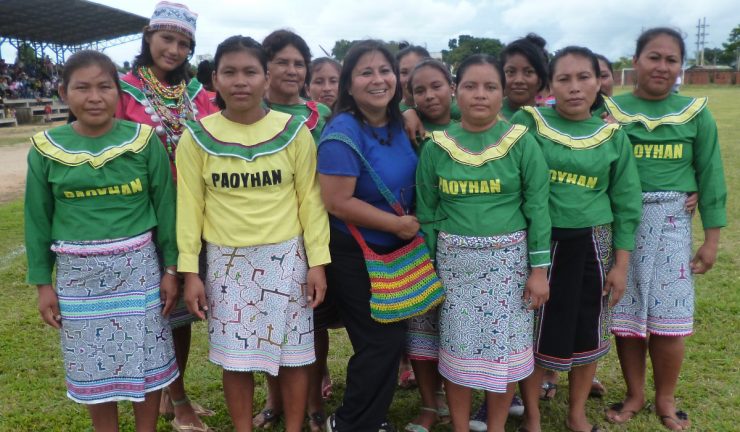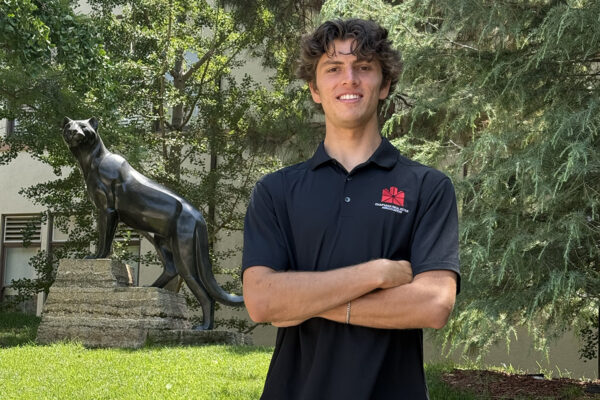Pilar Valenzuela’s field work in Peru is usually about documenting indigenous languages among people she has worked with since her graduate school days. But now, in the era of COVID-19, she’s working just as hard to save their lives.
“How can you do this sophisticated research when people are dying?” Valenzuela says.
Through the documentation of indigenous languages, the Chapman University world languages and cultures professor has long worked to help scholars better understand Peruvian tribes’ ancestral identities, tap into valuable knowledge imbued in their words for important plants and animals, and help the world learn something about a slice of humanity that is often overlooked.
While the linguist continues as she can with the language documentation afforded by a National Science Foundation grant, she has turned additional energy into fundraising and advocacy on behalf of the indigenous people, or Amerindians.
This summer, Peru became the world’s leading hot spot for COVID-19 infections and experienced the highest death rates from the disease in Latin America. Such a fatality rate threatens the stability of these already small communities, Valenzuela says.
“I’m very concerned because right now these communities are losing many elders,” she says.
Elders Are Critical to Storytelling Traditions
The loss of seniors is significant because they are often the source of nuanced language instruction conveyed in oral teaching and storytelling traditions.
Moreover, health care is slow to reach the tribes and not particularly prioritized by the government, she says. In fact, children in a village she visits often suffer from pertussis, or whooping cough, a disease easily preventable by vaccine. So Valenzuela and a cohort of other scholars are doing what they can to help.
They started a GoFundMe campaign to support a local nonprofit aiding the tribes, and they used their academic connections with government ministries to flood officials with letters appealing for more resources to be sent to Amerindian communities.In addition, Valenzuela extended a hand to help keep research activities alive. She helped tribal leaders apply for several small grants to support cultural studies and projects.
Valenzuela’s own work in the region is extensive. Her dissertation “Transitivity in Shipibo-Konibo Grammar” received the Mary R. Haas Book Award granted by the Society for the Study of the Indigenous Languages of the Americas.
NSF Grants Support Work Documenting Languages
In 2009, she was awarded a National Science Foundation (NSF) grant for her work on Shiwilu, as well as Shawi, a sister language from the Kawapanan linguistic family. In 2018, Valenzuela received another NSF grant to collaborate with the Pontifical Catholic University of Peru to document a related language, Amawaka, spoken by just several hundred people and at risk of being completely displaced by Spanish.
Additionally, to foster a better understanding of native naming traditions, the government of Peru enlisted her to research the names and make recommendations to help bring into official use what many Amerindians call their “true names.” The result is the book “Tesoro de nombres Shipibo-Konibo,” which roughly translates to “Treasure of Names of the Shipibo-Konibo.”
Valenzuela continues to analyze grammar, diction data and video recordings gathered for a dictionary. But COVID-19 travel restrictions will delay additional field work.
“It’s slowing down the project,” she says. “But we’re not so much concerned about the research right now. We’re concerned about the people.”




